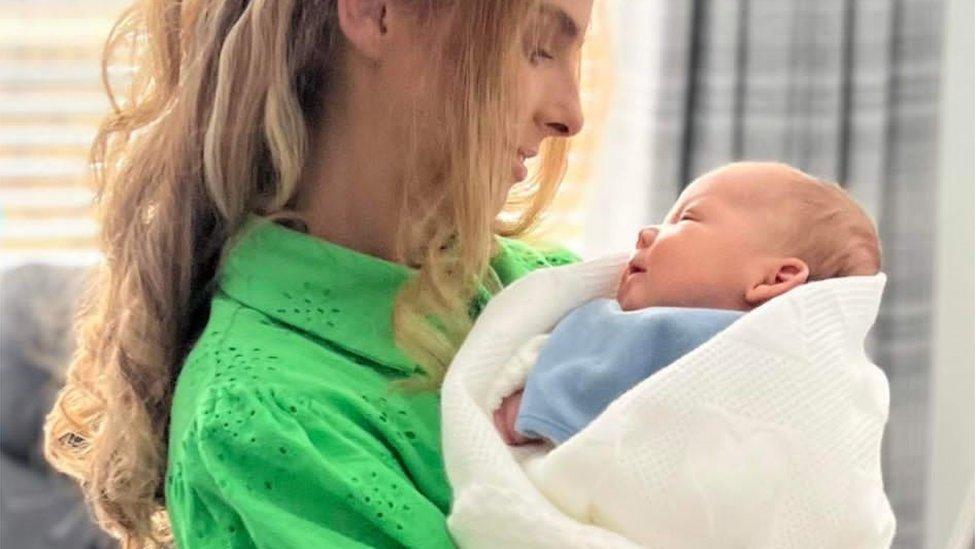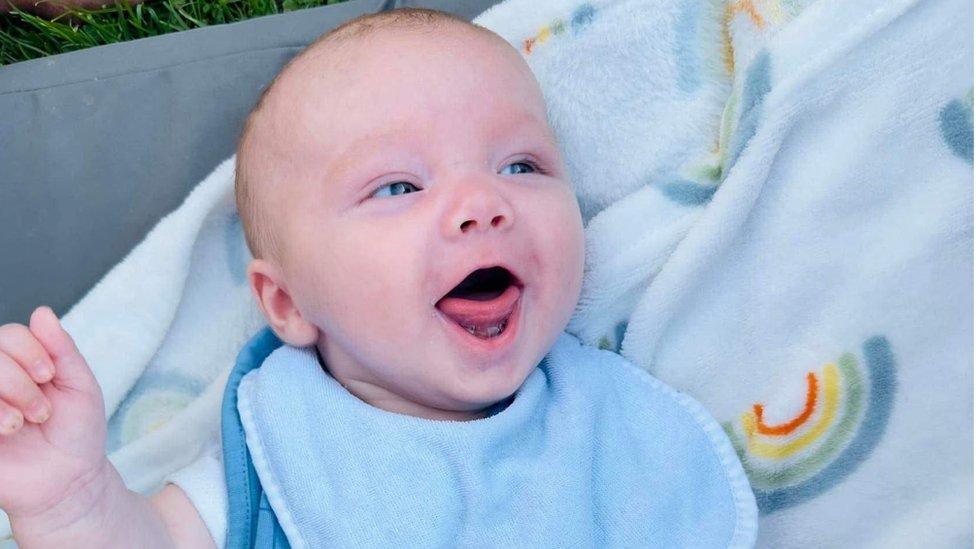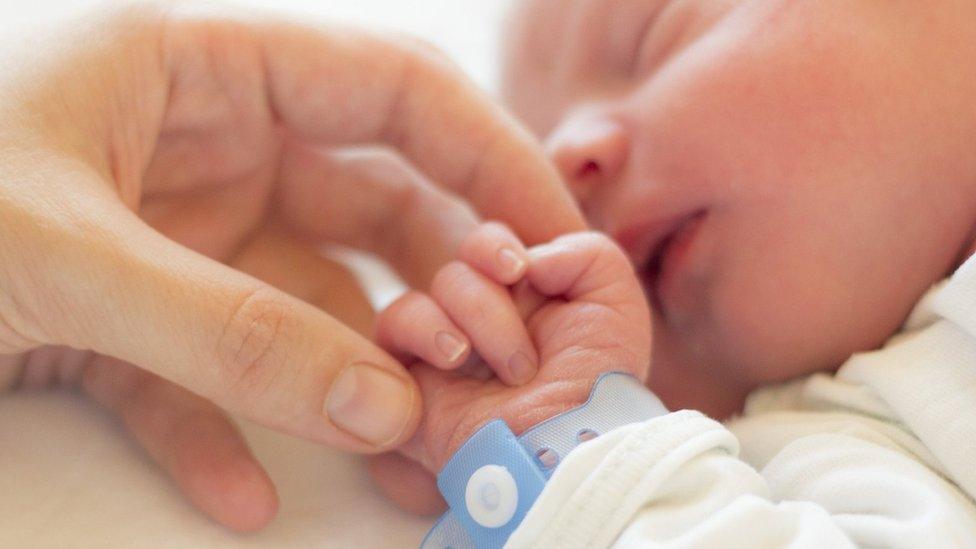Strep B: Mum calls for all pregnant women to be tested
- Published

Shannon Doherty and baby Rían who is now doing well back at home
A woman whose baby became critically ill with a Group B Streptococcus infection has called for testing for all pregnant women in Northern Ireland.
Shannon Doherty's son Rían became ill when he was six weeks old. Blood tests confirmed he had late onset Strep B.
The baby survived but may have long-term health damage.
In Northern Ireland routine testing for the infection in pregnancy is not currently recommended, the Department of Health has said.
The department said there was "insufficient evidence to support it".
Group B Strep (GBS) is one of the most common causes of life-threatening infections in new-born babies and it is fatal in a small number of cases.
Ms Doherty, from Londonderry, said that she had been diagnosed with the infection during her pregnancy, and both she and the baby received antibiotics during labour.
She said she called an ambulance for her son in July after she became concerned around the colouring of his skin and his breathing.

Baby Rían Doherty wakes up smiling every morning, according to his mother
His condition quickly deteriorated and he was taken to Altnagelvin Hospital.
Medics carried out a lumbar puncture procedure on the baby to try to determine the cause of his illness.
"That procedure really took it out of him. I was fearing the worst," Shannon told the BBC's North West Today programme.
"He was, thankfully, started really early on antibiotics; otherwise, he wouldn't have made it through."
In 2019, Northern Ireland's political parties jointly called for Group B Strep screening for all pregnant women.
Most strains of the new born infection can be prevented by testing during pregnancy and providing intravenous antibiotics to women in labour.
However, the UK does not routinely test for GBS, unlike the United States, Canada, Germany, France and Spain.
Experts worry that routine testing would see antibiotics given to many more women.
'Life turned upside down'
Ms Doherty took to social media to highlight her family's experience as she said she wanted to create awareness around Group B Strep.
She said the family now faced a waiting game as Rían grows to get a full sense of the impact the infection has possibly had on him, as it caused bacterial meningitis and sepsis.
"I watched my son go from a healthy wee baby, to his life turned upside down," she said.
"His future, being able to walk, talk and play football is not guaranteed to us.
"I wouldn't have known I had Group B Strep with Rían only I was tested when I had a kidney infection. That's not right. It should be mandatory," she said.
'Don't be afraid to talk'
She said she wanted to raise awareness of the problems such an infection can cause.
"My son is a smiler. He wakes up every morning with a wee smile on his face and that's what motivates me to keep going.
"He's overcome a lot and that smile means the world to me.
"My message to parents is: 'Don't be afraid to talk openly about Group B Strep.'
"People are nervous to ask me about it, what it is and what it means for the future.
"I believe that the infection and what it can do is just not highlighted enough within the NHS".
The Department for Health said that its position with regard to routine testing is kept "under regular review".
"If you are concerned about GBS, discuss it with your doctor or midwife," it added.
Related topics
- Published2 July 2019
